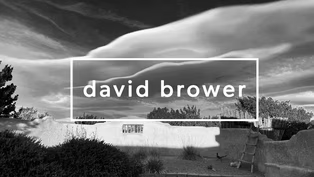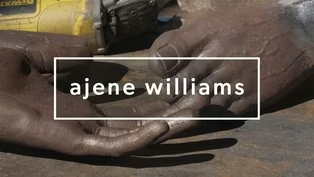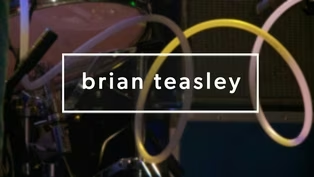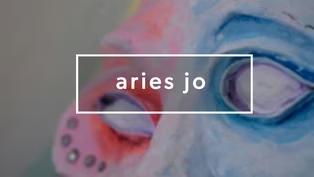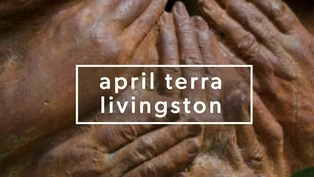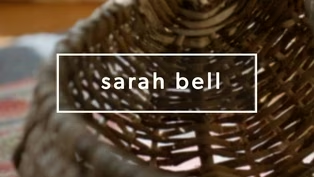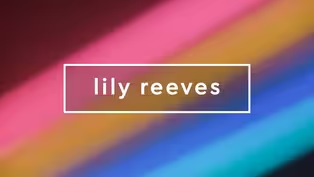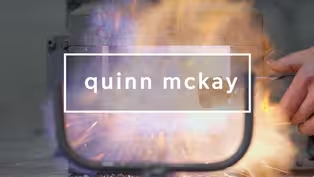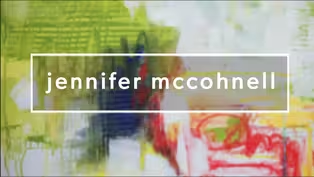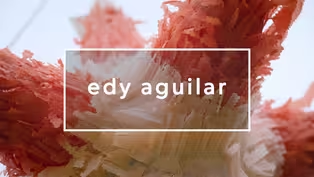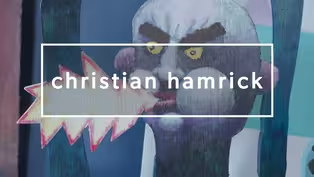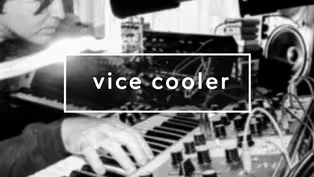Monograph
Brian Teasley
Clip: Season 7 | 11m 49sVideo has Closed Captions
A life of bringing people together to make and experience music.
Brian Teasley has been playing drums since he was a young kid. As the pounding backbone of his world-traveling sci-fi surf-punk band, Man… Or Astro-Man?, he learned early on that the best way to promote and tour was to do it himself. That same DIY ethos later lead him to start two world-renowned clubs that make the performer’s experience just as important as the audience’s.
Problems playing video? | Closed Captioning Feedback
Problems playing video? | Closed Captioning Feedback
Monograph is a local public television program presented by APT
Monograph
Brian Teasley
Clip: Season 7 | 11m 49sVideo has Closed Captions
Brian Teasley has been playing drums since he was a young kid. As the pounding backbone of his world-traveling sci-fi surf-punk band, Man… Or Astro-Man?, he learned early on that the best way to promote and tour was to do it himself. That same DIY ethos later lead him to start two world-renowned clubs that make the performer’s experience just as important as the audience’s.
Problems playing video? | Closed Captioning Feedback
How to Watch Monograph
Monograph is available to stream on pbs.org and the free PBS App, available on iPhone, Apple TV, Android TV, Android smartphones, Amazon Fire TV, Amazon Fire Tablet, Roku, Samsung Smart TV, and Vizio.
Providing Support for PBS.org
Learn Moreabout PBS online sponsorship(rock music) I've, at this point, played like 3,400 or so shows in 51 countries.
And you get to meet all these people that you're like, oh, you got infected by the same crazy virus with music and punk rock that I did.
So you just connect so instantly with those kind of people.
(rock music) (crowd cheering) My name's Brian Teasley and I'm a musician and a club owner.
Music was always, you know, something that was a solace, something that was always something that would provide meaning to a lot of situations that were either unclear or didn't have a meaning otherwise.
People use the term soundtrack of your life way too often, but I was just kind of always struck by that, especially listening to AM radio early on as a kid.
I would make the family put on a Christmas concert every year.
And I think when I got about 11 or 12, my mom said I was making everybody practice too much and too hard.
♪ But do you recall ♪ ♪ The most famous reindeer of all ♪ ♪ Rudolph the Red-Nosed Reindeer ♪ ♪ Had a very shiny nose ♪ ♪ And if you ever saw it ♪ ♪ You would even say it glows ♪ And one year my uncle got upset and quit, and that was the end of our Christmas concerts.
In the early '80s when I first started playing music as a kid, the other kids in my neighborhood played guitar, and the virtuosity of like tapping and hammering on that was so prevalent, like Randy Rhoads and Eddie Van Halen, I was like, I never, I'm never gonna be able to do that, but I can bang those things.
And plus it was diversifying my CV of a nine-year-old.
We had an old dresser cabinet that had a mirror on it also in the garage, so I could see myself playing, which probably has made my drumming overly visual in a way, in a sense of demanding attention that doesn't necessarily always need to be there.
I mean, that's as much of a criticism as it is a strength, I guess.
Christmas of 1991, I'd gone home for Christmas and I went up in the attic and I went through my folks' old LPs.
And they had a lot of stuff like Duane Eddy and Link Wray or The Ventures especially.
And I just thought that stuff was so cool.
And there again, it was kind of fast and had an energy to it.
There's that yin and yang to everything.
You're influenced by the things you love, and then you're also influenced by what you don't want to be and the things that you just have a bad reaction to.
And a lot of the music that you were hearing was overly earnest, overly sharing of this sort of like, my dad didn't come to my T-ball game and I'm gonna sing about it, kind of music.
And that wasn't, you know, and we were like, we don't want to be that, and we should probably solve that problem by being an instrumental band.
(chuckles) You know, just completely dodge the issue.
And then hearing all that instrumental music that had such an appeal to us was just a vehicle for at least a foundation of what we based our music off of, even though it like evolved to a much different place eventually.
(rock music) One thing we've always said with Man or Astro-man?
is we're bringing you yesterday's technology, tomorrow.
(rock music) (rock music continues) (rock music continues) The other thing we were doing a lot is putting on shows for bands coming from out of town.
Famously we did Green Day in a bedroom on a stage made out of bold antique doors.
It was a really cool time because that's when you could meet people from these places you had never even been to before.
That was great, because then you would meet people, and the way it used to happen, just like trading B-movie videotapes, is you would trade shows with some band you had met from, you know, Lincoln, Nebraska, and slowly build together a network of people.
And I'd call a lot of clubs as a manager or as a fan of the band and be like, "Hey, you know when they're playing there?"
Or this or that.
It's like, "Oh, who is that?
We haven't heard of them."
And then call back and be like, "Hey, we were coming through town," and you know, like kind of already have the wheels pre-greased for some kind of receptiveness by a club.
When we had our first seven-inch out, I sent a postcard to John Peel, who is like, probably one of the most famous DJs in history.
Sent it to him at the BBC, and I said, "Hey, please don't play our record."
I included a copy of the record, of course.
And I said, "Please don't play this record 'cause we don't want to be one of those flash-in-the-pan bands that gets hot in the UK and then sizzles into nothing," knowing that he might have a better chance of playing it that way, and he did.
I didn't even really realize how much of an effect that his show in particular with the BBC Worldwide, like how many people heard that stuff.
(rock music) (crowd cheering) Starting getting into the club side of the world and putting on a show, it was really something I never thought I would do.
And it wasn't even necessarily intentional that, oh, that will be something else that will be part of my life.
But really it came out of like, let's quit saying that there's not some of these things here and create the place, and maybe there's 30 people that will come out and support it.
Merrilee Challiss and I were talking a lot of like, "Hey, it would be really cool if there was a vegetarian restaurant mixed with a small club that could also do art exhibits," and kind of this, you know, hodgepodge of all the things that we were really into.
And then we would just try to combine, you know, the punk rock ideals that we had with Southern hospitality and then with this kind of European communal vibe that I'd gotten from touring over there a lot.
And luckily, you know, I had been in so many bands at that point that had been connected to a lot of different booking agencies and labels and things like that, that I got to kind of call in a lot of favors and be like, "Hey, can Mudhoney come play this little tiny place?"
And there's so many bands that went on to be significant or huge that played what is now the soda fountain section of Joyland.
Well, after Bottletree, I never thought I would do another music venue.
And I walked by going for a walk from my house and saw the building that's the venue part of Saturn now.
And then the space next door here became open, and I was like, oh, what about if we could Kool-Aid man style smash through the walls and connect the two buildings and create this one space that was like place that did something during the day and then was open late at night.
And oh, then there's the space above it.
'Cause one of my caveats was that people should be provided a place to be able to stay overnight as part of their experience.
You know, like people don't realize, and I'm talking about bands that are famous, like top-level bands, like even that live in the lap of luxury in a lot of ways.
It's hard to tour.
And it's hard to tour for a long time.
It's not a natural life, you know, it's like, it's constant barrage of noise and sound and aggravation and being on all the time, and also having every bad possible thing you can do in life constantly around you.
Never lost to me when a band shows up here that I don't know what they've been through, but I bet it's hard.
I bet, you know, maybe they had a 13-hour overnight drive from Austin and they're just worn out.
Maybe they just want a safe, quiet place to be able to chill.
Maybe they need some space to get away from each other.
Something that Steve Albini always instilled was this is the path.
It doesn't have to be exactly your path, but there's a way to do this where you're honest and fair and treat people right and feel good about what you do and have it be fulfilling.
So thankful I got exposed to that.
I'm so thankful that there's still people that care about it, and I constantly find my people that I've been looking for.
Still meeting people that have the same crazy thoughts about art and music is still why you do it.
It's still why you do it every day.
And sometimes it's easy to forget, but it's something that I should try to recognize and wake up every day and kiss the, well, I don't know if our stage has been mopped today, but kiss the ground of the stage to like be thankful that I'm connected and have met all these people.
[Announcer] End of quiet groove.
(rock music)
Video has Closed Captions
Clip: S7 | 6m 50s | Artist David Brower on his interdisciplinary creative journey. (6m 50s)
Video has Closed Captions
Clip: S7 | 5m 22s | Metal Arts, Ajene Williams transforms cold scrap metal into warm, joyful sculptures. (5m 22s)
Video has Closed Captions
Clip: S7 | 11m 49s | A life of bringing people together to make and experience music. (11m 49s)
Video has Closed Captions
Clip: S7 | 6m 28s | Using art to process grief and transform it into a life of authentic joy. (6m 28s)
Video has Closed Captions
Clip: S7 | 7m 33s | April Terra Livingston gives form to ideas through many art forms to educate the world around her. (7m 33s)
Video has Closed Captions
Clip: S7 | 8m 43s | Sarah Bell creates intuitive, woven art that captures the essence of place and season. (8m 43s)
Video has Closed Captions
Clip: S7 | 7m 10s | Birmingham native, Lily Reeves captures sculptures of light in her neon studio. (7m 10s)
Video has Closed Captions
Clip: S7 | 5m 43s | Birmingham blacksmith Quinn McKay transforms nature into elegant, functional metalwork. (5m 43s)
Video has Closed Captions
Clip: S7 | 7m 19s | Visual artist, Jenny Fine, transforms memory into visual narrative. (7m 19s)
Video has Closed Captions
Clip: S7 | 7m 58s | Alabama based conceptual artist, Jennifer McCohnell. (7m 58s)
Video has Closed Captions
Clip: S7 | 5m 36s | Piñata maker and multimedia artist, Edy Aguilar, in Northern Alabama. (5m 36s)
Video has Closed Captions
Clip: S7 | 4m 56s | Christian Hamrick's childhood home became both canvas and classroom, fostering boundless creativity. (4m 56s)
Video has Closed Captions
Clip: S7 | 6m 35s | Alabama native Vice Cooler is a multifaceted artist based in LA. (6m 35s)
Providing Support for PBS.org
Learn Moreabout PBS online sponsorshipSupport for PBS provided by:
Monograph is a local public television program presented by APT
